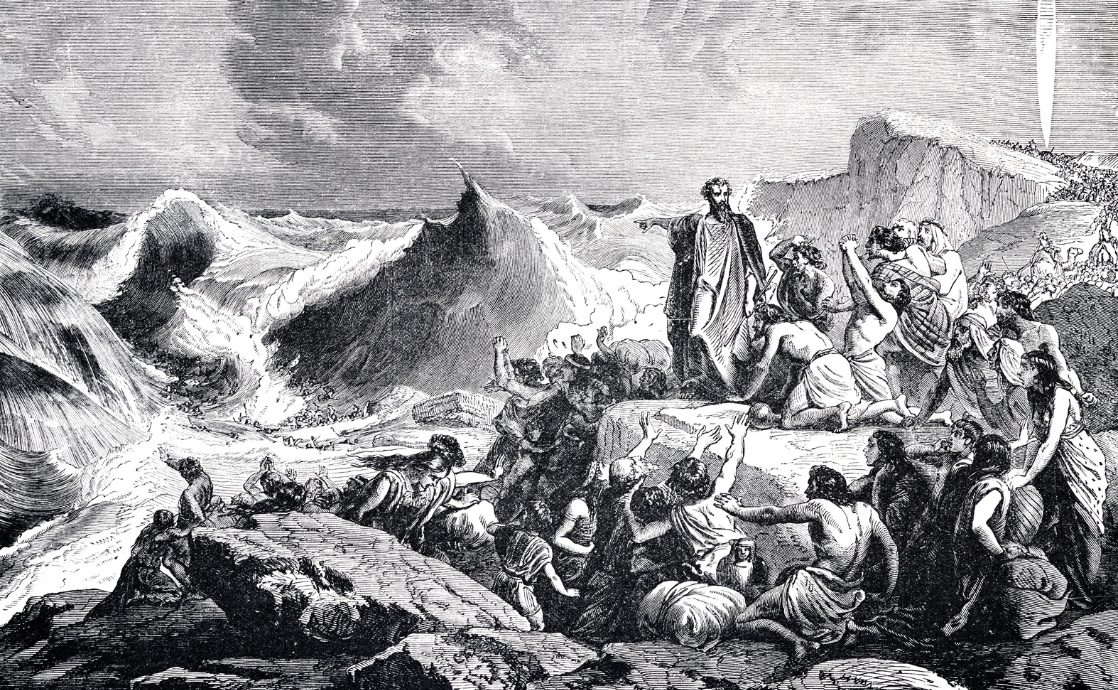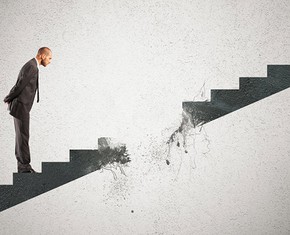The views expressed in our content reflect individual perspectives and do not represent the authoritative views of the Baha'i Faith.
The first great Christian novel, completed in the fourth century CE and titled, in its Latin version, The Recognitions of Clement, may have been written as a novel in order to attract a pagan readership.
For a work of fiction, the book embeds lengthy discourses that reflect a form of early Jewish Christianity at that time. Scholarly interest in the book, also available in Syriac, in addition to the Greek and Latin versions, focuses not only on early Christian doctrine, but on the work’s historical significance.
RELATED: When Moses Struck the Rock in the Wilderness, was He Imperfect?
In this distinctive work, readers learn about the doctrine of the “True Prophet,” who “alone is able to enlighten the souls of men.” The book also features extended debates between Peter and Simon the Magician, in which Peter says:
Assuredly, with good reason, I neither believe anything against God, nor against the just men recorded in the law, taking for granted that they are impious imaginations. For, as I am persuaded, neither was Adam a transgressor, who was fashioned by the hands of God; nor was Noah drunken, who was found righteous above all the world; nor did Abraham live with three wives at once, who, on account of his sobriety, was thought worthy of a numerous posterity; nor did Jacob associate with four—of whom two were sisters—who was the father of the twelve tribes, and who intimated the coming of the presence of our Master; nor was Moses a murderer, nor did he learn to judge from an idolatrous priest—he who set forth the law of God to all the world, and for his right judgment has been testified to as a faithful steward.
That passage concerning Moses refers to a Biblical account from Exodus 2:11, in which a young Moses strikes and kills an Egyptian:
And it came to pass in those days, when Moses was grown, that he went out unto his brethren, and looked on their burdens: and he spied an Egyptian smiting an Hebrew, one of his brethren. And he looked this way and that way, and when he saw that there was no man, he slew the Egyptian, and hid him in the sand.
It is unclear whether the Homilies assert that Moses was justified in killing and attacking the Egyptian in what the law would now call “justifiable homicide” – acting in defense of another, whose life was being threatened – or simply did not kill the Egyptian at all.
According to Cornell Law School’s Legal Information Institute, a justifiable homicide is broadly defined as the “taking of a human life under circumstances of justification, as a matter of right, such as self-defense, or other causes set out in statute” which “absolves the actor of any criminal liability.”
For a possible Baha’i perspective on this question, let’s take a look at three texts which, when read together, may support the argument of justifiable homicide on the part of Moses. In the first text, from the book Some Answered Questions, Abdu’l-Bahá briefly summarized what happened:
Observe how the people are subjected to tests and trials. Moses struck down an Egyptian to prevent an act of oppression, became known among men as a murderer—especially since the victim belonged to the ruling nation—and was obliged to flee, and it was after all this that He was raised up as a Prophet. Behold how, in spite of His disrepute, He was aided through an extraordinary power to establish such great institutions and mighty undertakings!
Here, Abdu’l-Baha, in stating that “Moses struck down an Egyptian to prevent an act of oppression,” appears to imply that this was a justifiable homicide. That said, Moses still “became known among men as a murderer — especially since the victim belonged to the ruling nation.” From the perspective of justice, Moses seemed justified, but from the Egyptian perspective, Moses was a “murderer,” which put his life in danger, forcing him to flee for his own personal safety. In his Book of Certitude, Baha’u’llah wrote a fuller description:
For instance, consider Moses, son of Imran, one of the exalted Prophets and Author of a divinely revealed Book. Whilst passing, one day, through the market, in His early days, ere His ministry was proclaimed, He saw two men engaged in fighting. One of them asked the help of Moses against his opponent. Whereupon, Moses intervened and slew him. … The report of this incident spread throughout the city, and Moses was full of fear, as is witnessed by the text of the Book. And when the warning: “O Moses! of a truth, the chiefs take counsel to slay Thee” reached His ears, He went forth from the city, and sojourned in Midian in the service of Shoeb. While returning, Moses entered the holy vale, situate in the wilderness of Sinai, and there beheld the vision of the King of glory …
RELATED: Moses or Musa: What We Learn from the Names of the Prophets
Let’s now cross-reference to this interesting and relevant ethical principle, set forth in Some Answered Questions by Abdu’l-Baha:
Thus, if someone were to attack, injure, oppress, and wound me, I would in no wise oppose him but would show forgiveness. But if someone were to attack [another], I would of course prevent him. Although to the assailant non-interference would appear as kindness, it would be sheer oppression towards [the person being attacked]. So if a savage Arab were to enter the room at this moment brandishing a sword and bent upon assaulting, wounding, or killing you, I would of course prevent him. Were I to abandon you to that man, this would be oppression, not justice. But if he were to harm me personally, I would forgive him.
Now, when reading both of the above passages from Abdu’l-Baha together, it becomes clear that “Moses struck down an Egyptian to prevent an act of oppression” — pursuant to his (and our common) duty to prevent oppression and to act with justice. Therefore, Abdu’l-Baha may have considered the act of Moses to have been justified and therefore without “sin.” The Egyptians, of course, did not see things this way.
Since Abdu’l-Baha is considered by Baha’is as the unerring, divinely inspired interpreter of Baha’u’llah’s writings, having been so designated by Baha’u’llah himself, this reported act of Moses may be considered a justifiable homicide and the saving of a life, and not a murder at all.
















Comments
Sign in or create an account
Continue with Googleor